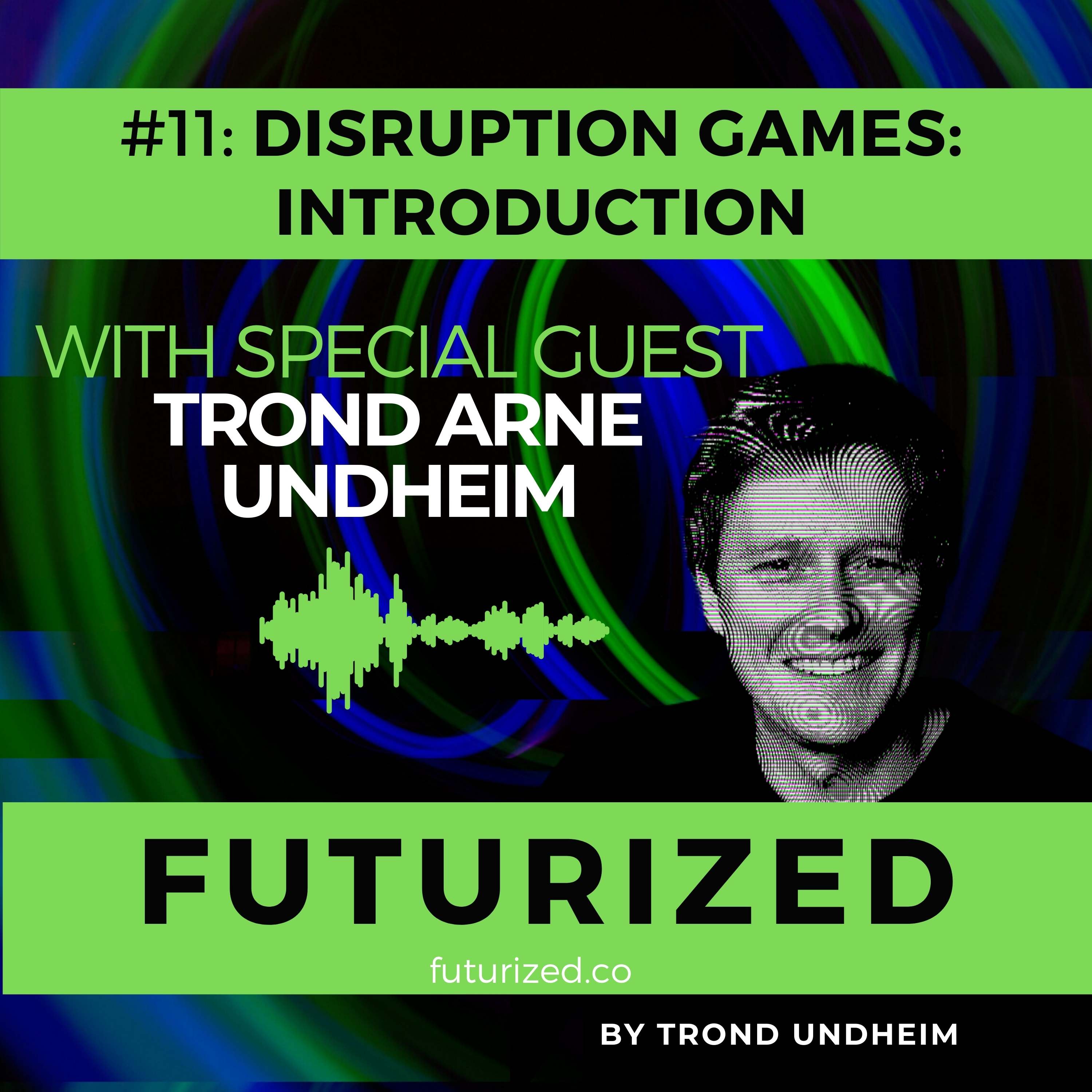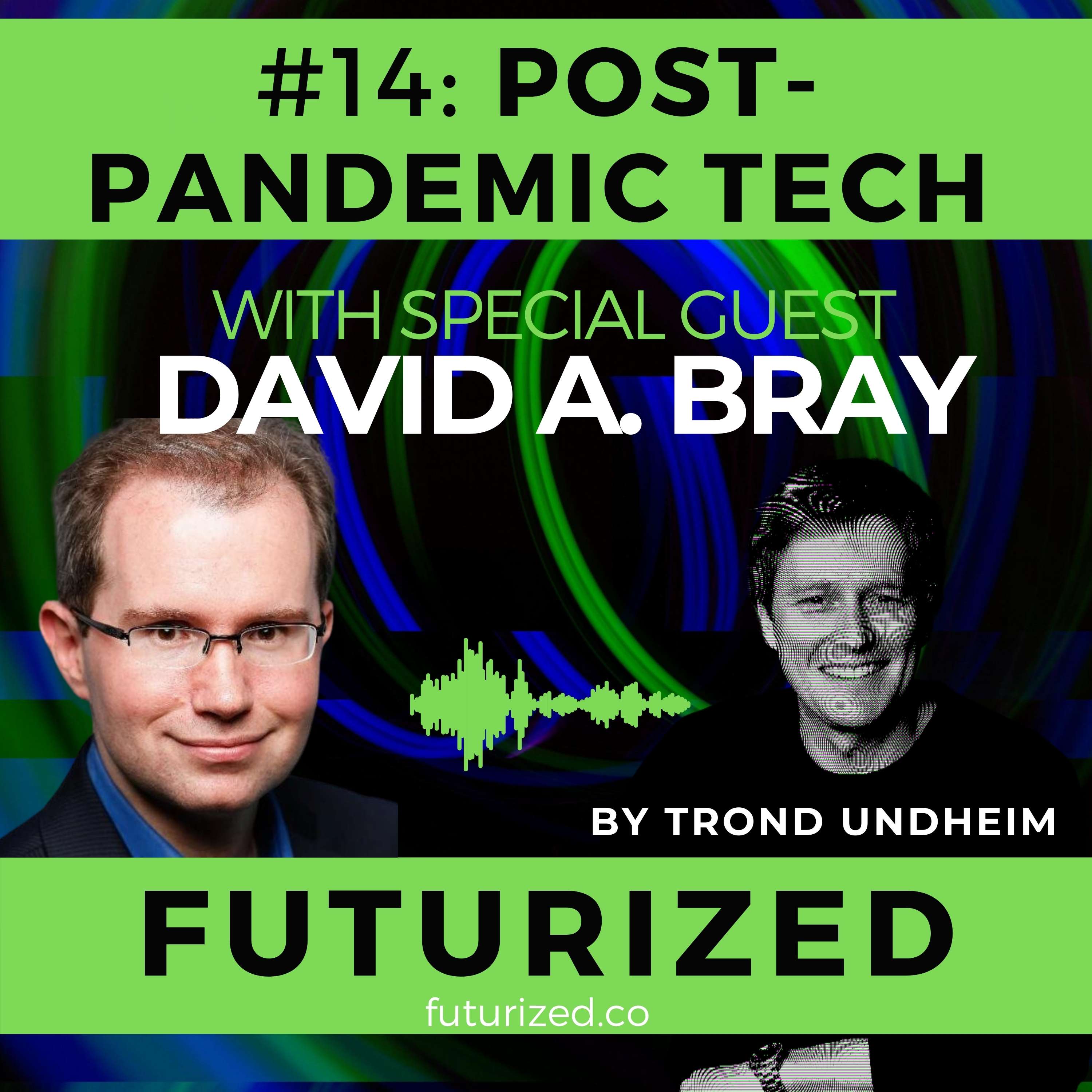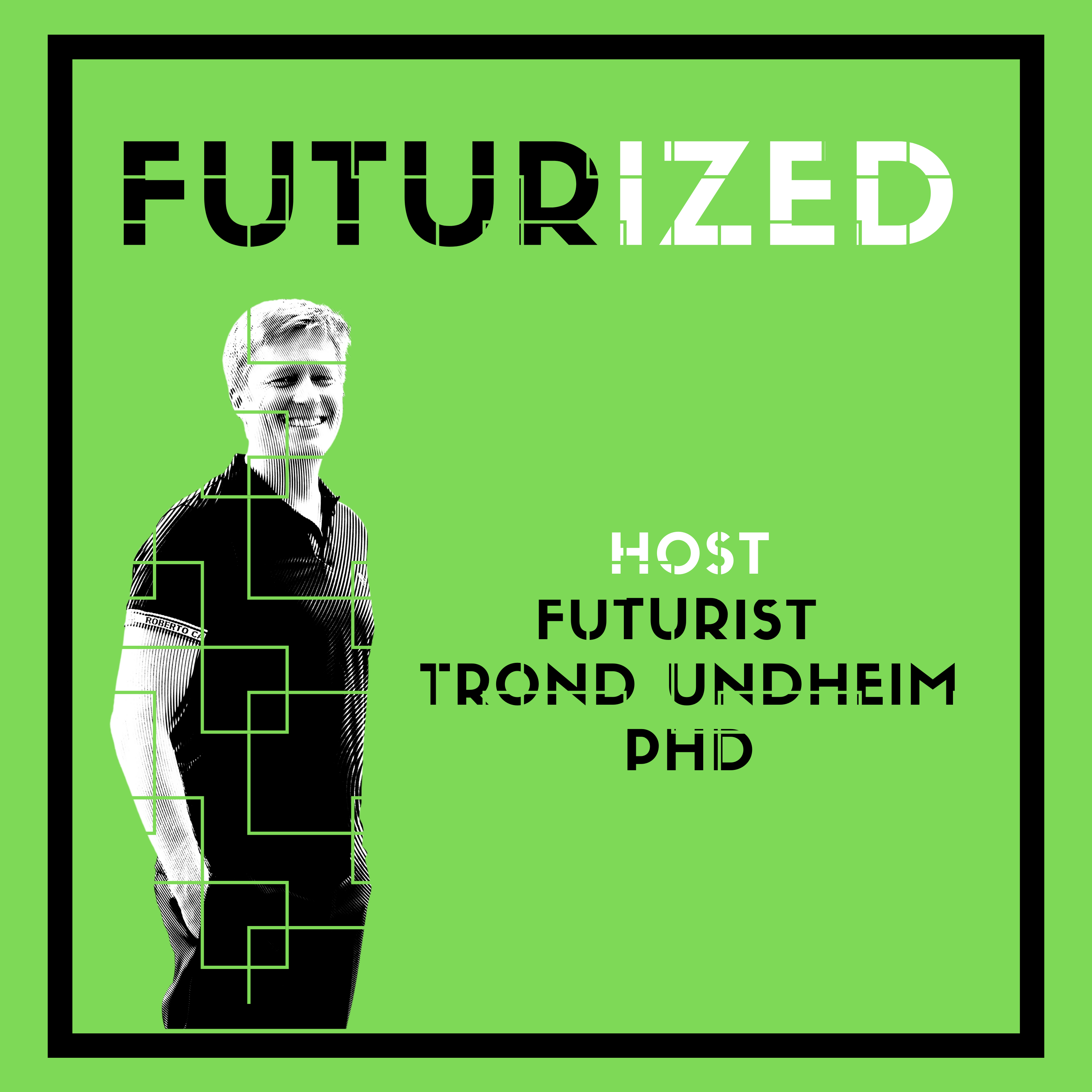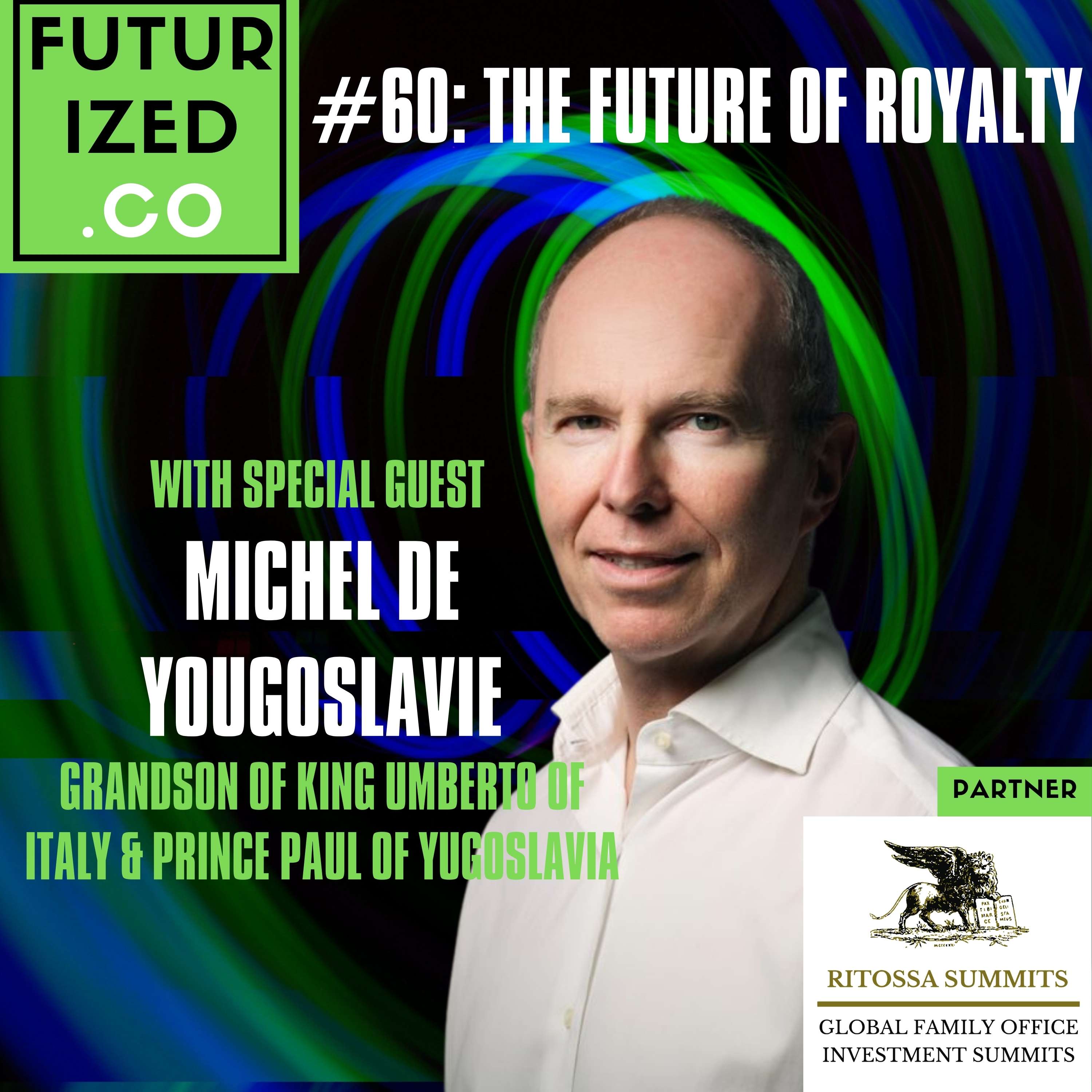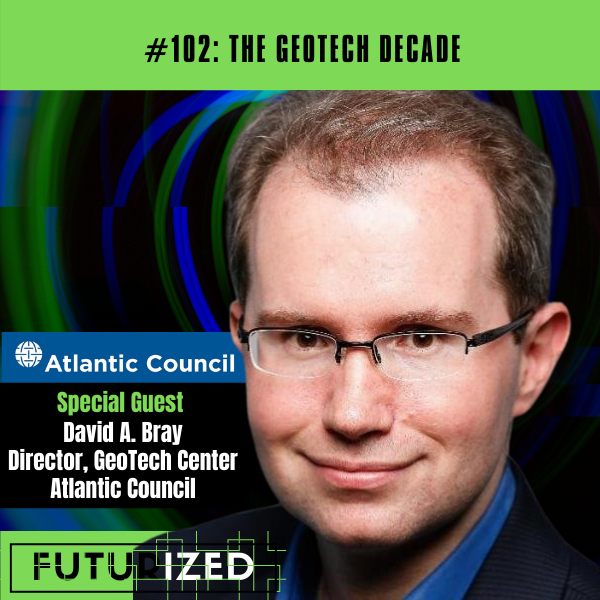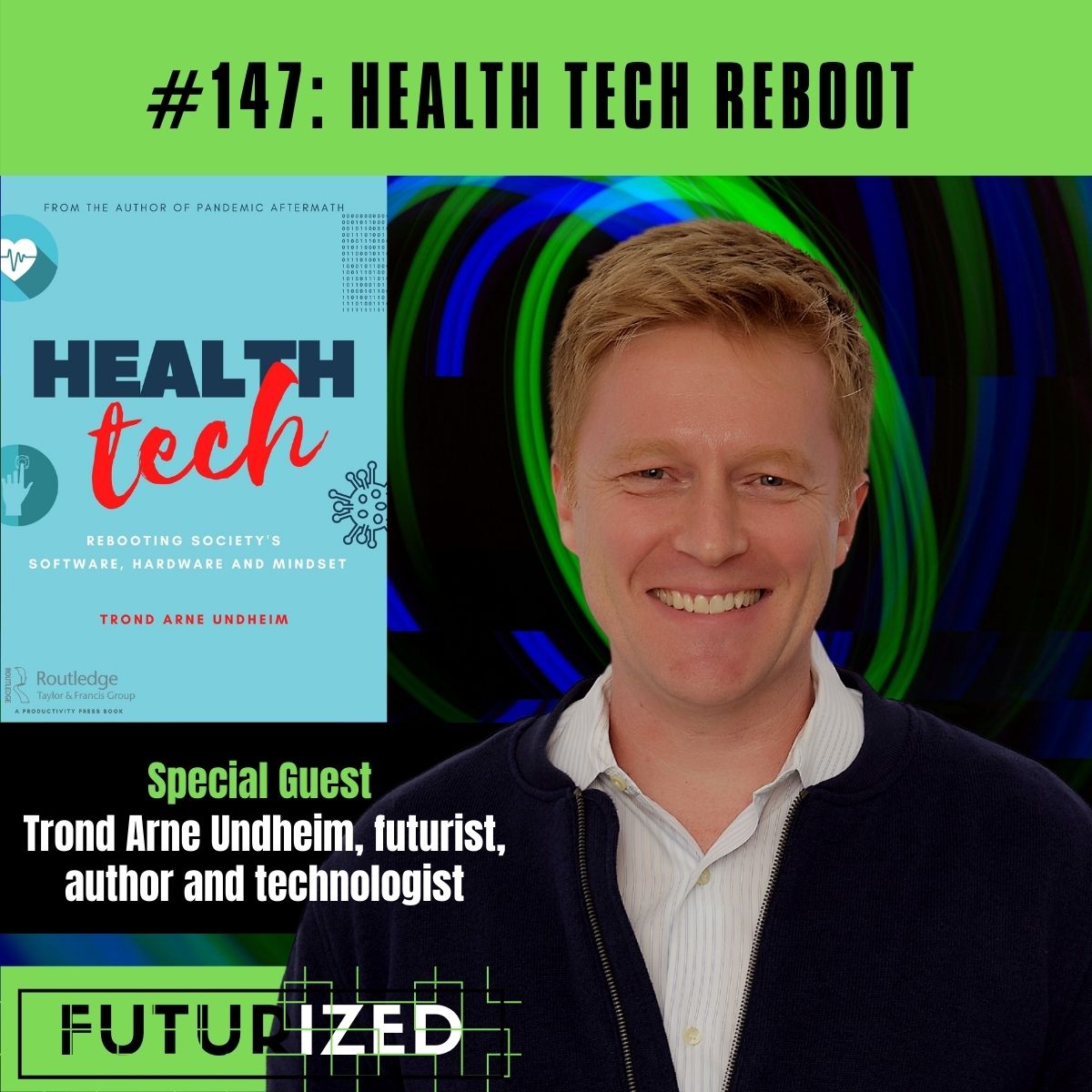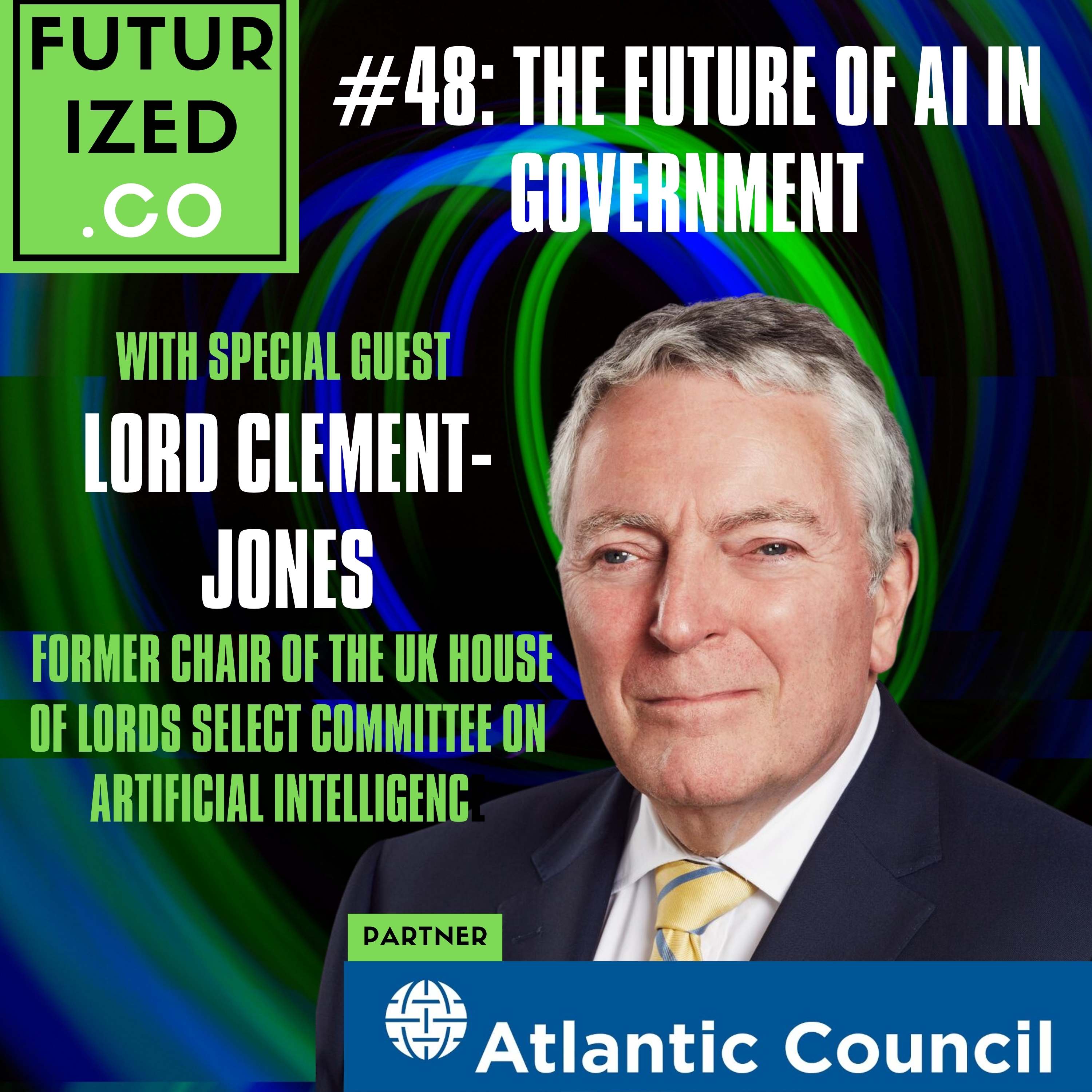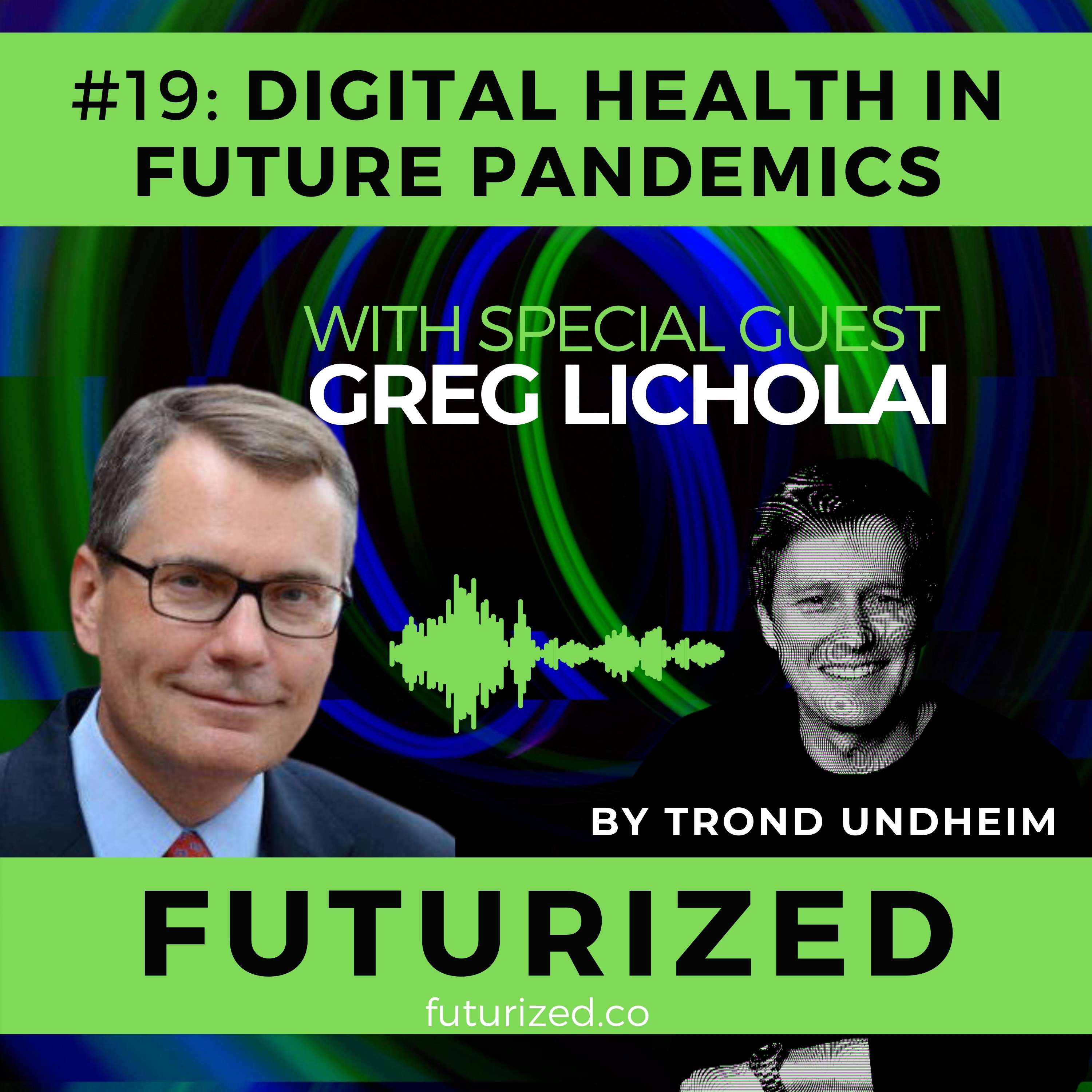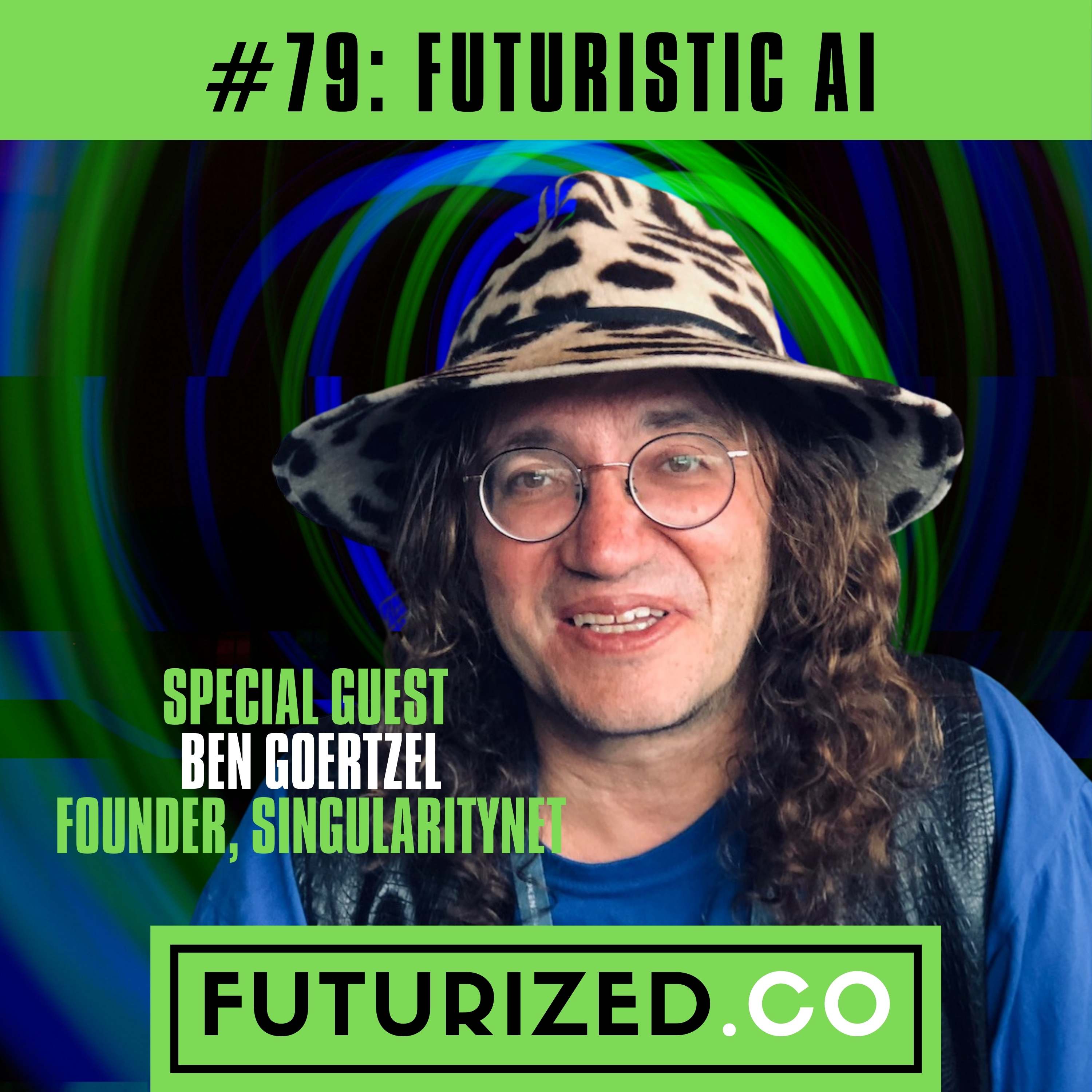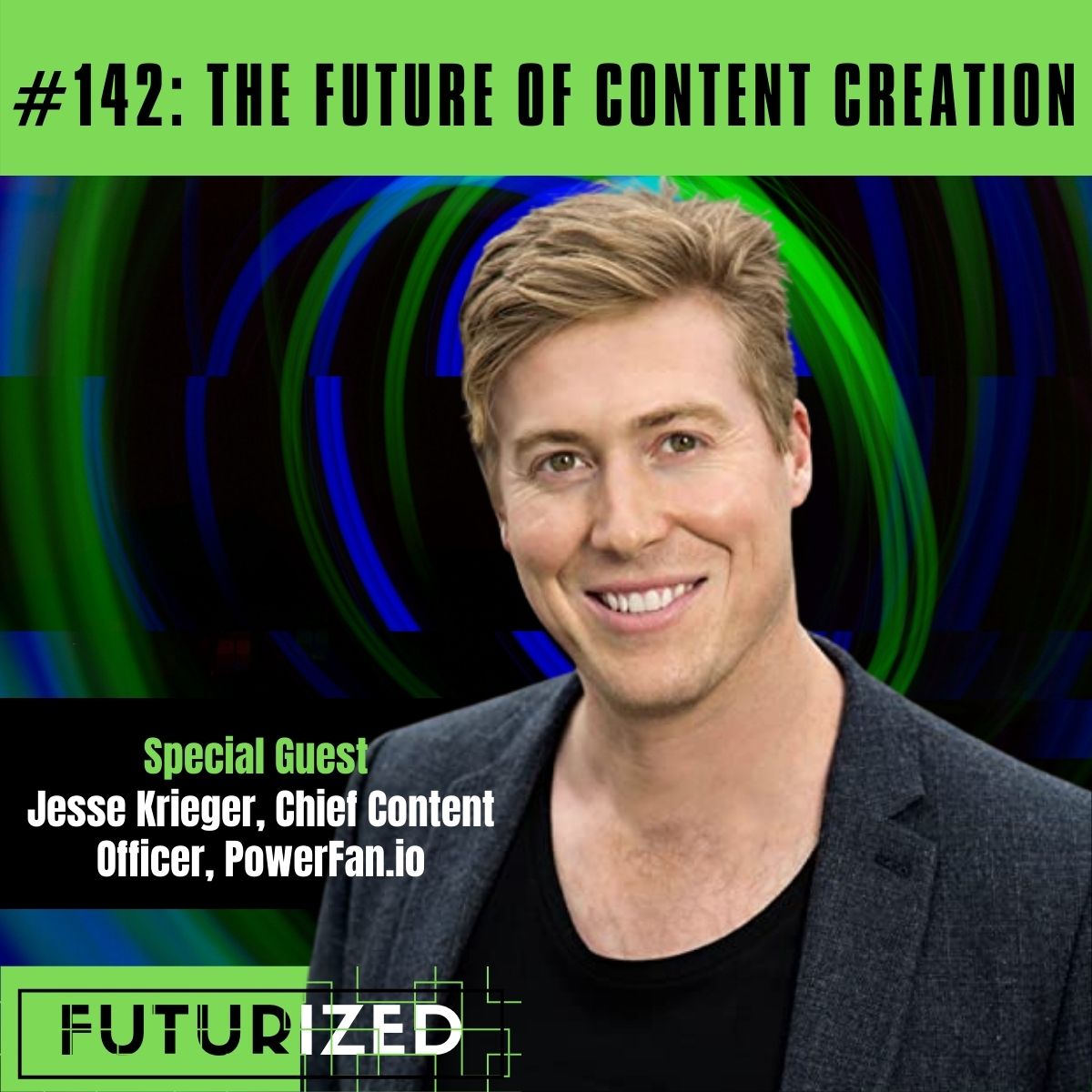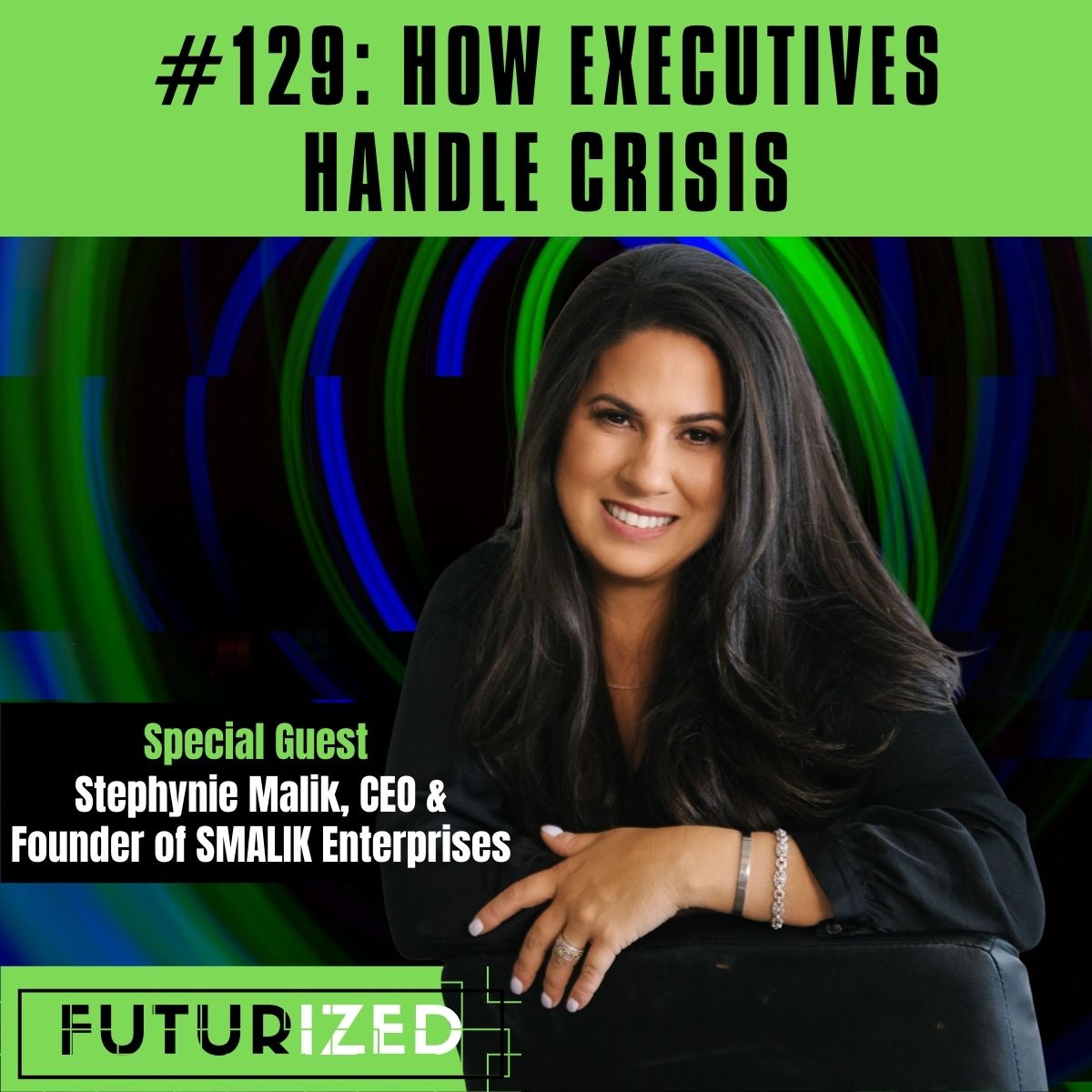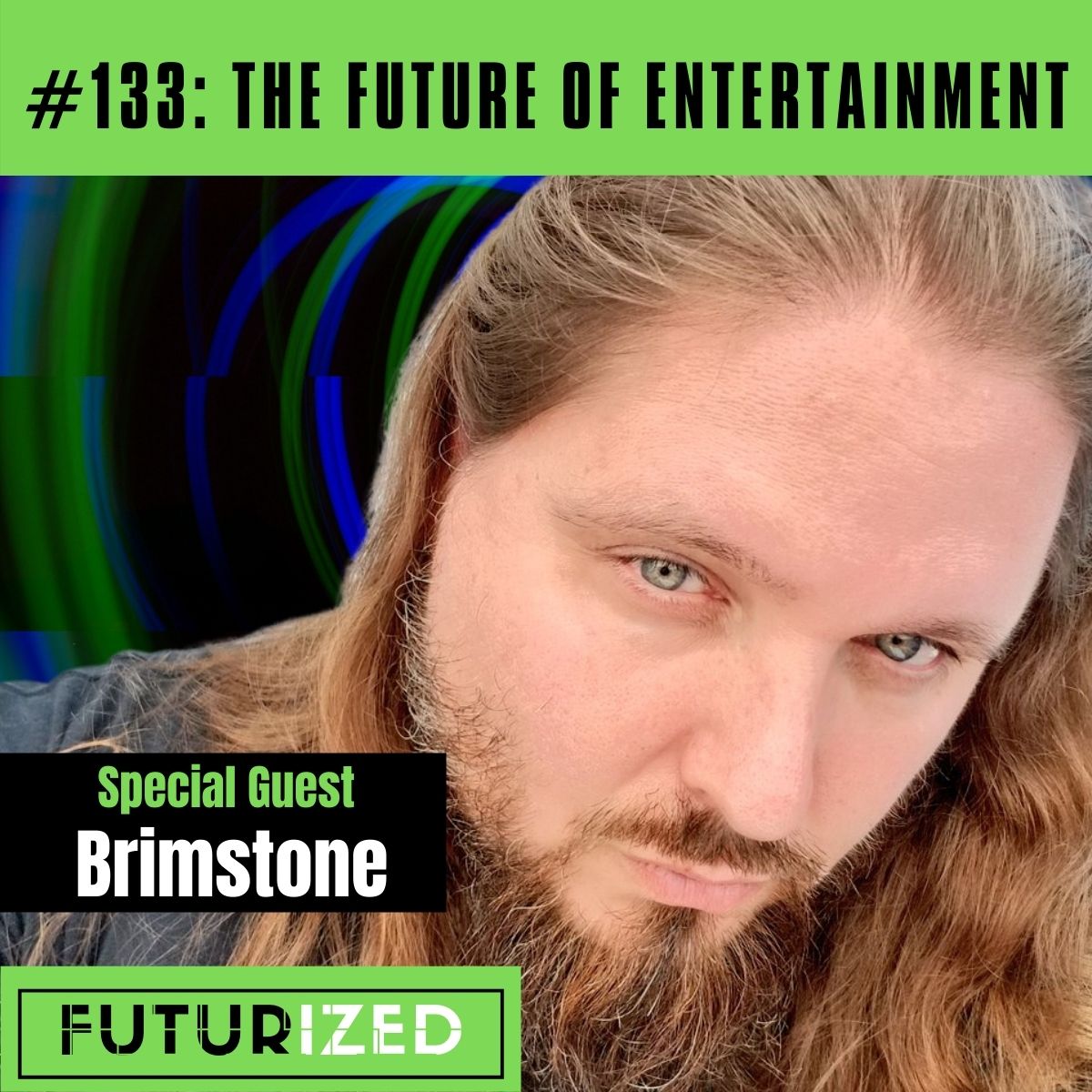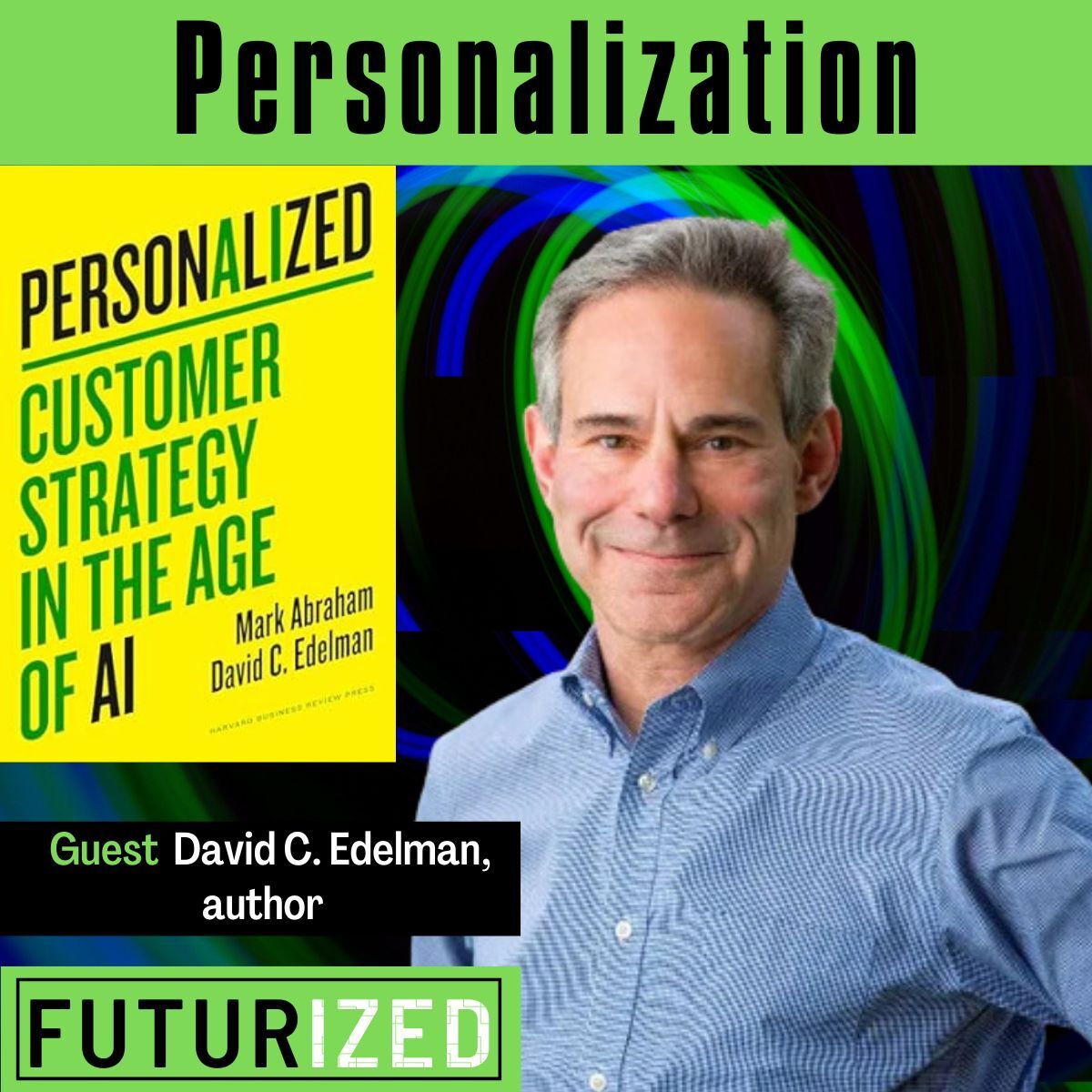Upskilling Youth for the 21st Century Bioeconomy
Natalie Kuldell, Executive Director & founder, BioBuilder Educational Foundation, interviewed by Trond Arne Undheim, futurist, investor, and author.
In this conversation, we talk about synthetic biology for all, bringing engineering into life science and...
Natalie Kuldell, Executive Director & founder, BioBuilder Educational Foundation, interviewed by Trond Arne Undheim, futurist, investor, and author.
In this conversation, we talk about synthetic biology for all, bringing engineering into life science and about deep science in classrooms. We discuss disruptive forces (tech, regulation, business models, social dynamics). We discuss skills shortage initiatives, biomanufacturing jobs, business models, exciting startups such as Ginkgo Bioworks and Asimov. She explains Biobuilder.org's pivot to online during COVID-19, scaling the efforts to the rust belt, community science, and community labs such as Genspace, BosLabs, BioCurious, Biogen Community Lab, Bricobio, and (iGEM) Foundation Jamboree. Finally, we discuss next decade's self-taught scientists and agri-bio revolution in rust belt farming communities.
Having listened to this episode, check out BioBuilder Educational Foundation as well as Natalie Kuldell's online profile:
- BioBuilder Educational Foundation (@SystemsSally):
- Natalie Kuldell: https://www.linkedin.com/in/natalie-kuldell-9947408/
My takeaway is that synthetic biology must become a skillset of every young person. They need it to understand the world they will grow up in. It will increasingly become a life skill, perhaps even a survival skill depending on how the world goes. "Citizen science is more than looking at stars, and looking at birds", says Natalie. For sure. Deep science is cool and it needs to be cool for a while. That much is certain.
Thanks for listening. If you liked the show, subscribe at Futurized.org or in your preferred podcast player, and rate us with five stars. If you like this topic, you may enjoy other episodes of Futurized, such as episode 22 The Future of Engineering Education, episode 36, The Future of Cultured Meat, or episode 81, 2x Community Science -- Cancer Map and COVID-19 Testing in Schools.
Futurized—preparing YOU to deal with disruption.
Trond Arne Undheim, Host (00:02):
Futurized goes beneath the trends to track the underlying forces of disruption in tech policy, business models, social dynamics, and the environment. I'm your host Trond Arne Undheim, futurist and author. In episode 90 of the podcast, the topic is up-skilling youth for the 21st century bio economy. Our guest is Natalie Kuldell, executive director and founder, Bio builder Educational Foundation. In this conversation, we talk about synthetic biology for all bringing engineering into life science and about deep science in classrooms, we discussed disruptive forces and skills, shortage initiatives, bio manufacturing, jobs, business models, and exciting startups, such as Gingko, Bioworks, and Asimov. She explained by a builder.org pivot to online during COVID-19 scaling the efforts to the rust belt, community science and community labs, such as gen space, boss labs, BioCurious Biogen community lab, Brico.bio, and iGem Foundation Jamboree. And finally we discuss next decades. Self-Taught scientists and agri bio revolution in rust belt, farming communities,
Trond Arne Undheim, Host (01:23):
Natalie. Good to see you. How are you?
Natalie Kuldell, Biobuilder Foundation (01:25):
I'm Great. Nice to see you.
Trond Arne Undheim, Host (01:27):
Yeah. And I should say for the podcast listeners, when I say see you, it's a, it's a metaphorical CU, but there, there is of course also a video, but Natalie, I am so excited to talk to you about educating and upskilling for the next generation. You know, you, you know, in, in the bio economy and I wanted to just note a little bit, your background, you have a fantastic mixed background. I believe you, you've taught at Wellesley, you've taught at MIT and you're still teaching, but your passion lies elsewhere. And I find that very enthralling and it must be a very good reason why you're so passionate about educating kids that may not be yet, or may not be so lucky as to attend these two excellent schools. So w whereas you have benefited from, you know both a fantastic education in that regard and teaching at these stellar institutions, you somehow believe that the world needs to get quicker access to this knowledge. How did this happen? Tell me a little bit about yourself. What is it that motivates you and what got you into this very passionate and important task?
Natalie Kuldell, Biobuilder Foundation (02:39):
I do wake up in the morning thinking about this and, and do spend my, my days planning, how to bring more people into the wonderful opportunity that the bio economy offers. I think I came to it partially because I had the great, good fortune of having a very authentic laboratory experience when I was in high school. And I think without that chance to work in a real research lab and do true science and engineering investigations I, I'm not sure I would have, have chosen this path. I am never quite sure why we hide the very best parts of science when we teach science, but science is such a exploration of what's unknown and asking great questions and, and figuring things out and working together. So I've really tried to bring that notion into all the teaching and curriculum development that I do.
Trond Arne Undheim, Host (03:42):
You said something interesting, you know, about science. And I think, I dunno, just in my own experience, I've had so many and we hide the best things about science. You said I've had a few really great science teachers and I've watched them I've also had a few, not so good teachers. And the difference is enormous. It's almost like the subject completely changes, but is the ambition you have that the subject itself kind of comes to the foreground and that the teachers then come to the background, or is this still a subject that is very teacher dependent?
Natalie Kuldell, Biobuilder Foundation (04:25):
So I do really believe that the single most impactful element we could put into a classroom is a great teacher. No doubt about it. You could put in all the iPads and smart boards and, and fancy electronics into the classroom. And if you have a terrible teacher it will fall flat. But we owe it to those wonderful teachers to give them great curriculum because it will bring out their love of teaching and their love of learning. And that is I think the most impactful way that we can engage students is to make the very best teachers the very best they can be.
Trond Arne Undheim, Host (05:09):
I want to go straight to a paradox because we'll unpack this very complicated subject that you, I guess, pretend is very easy. So you have a doctoral and postdoctoral work carried out at Harvard medical school. You've been, you know, as, as a, as I said, you're very steeped in the biological faculty at, at MIT surrounded by the world's top notch scientists. So I, I want to challenge you with this before we get into the detail. Isn't it very easy for you to say that this is easy and then yet your life proves that it is not. So I wonder this whole balance between how much is it really possible to learn through these very quick introductions that you are providing versus the long journey and arduous journey of learning? One of the most complicated subjects I presume on, on earth, or is it not that you're trying to do with bio builder or you just trying to instill the passion and then you are fully expecting people to then dedicate a lifetime, to try and to learn what you have learned.
Natalie Kuldell, Biobuilder Foundation (06:17):
I hope that through bio builder, we can bring about a changed mindset, which is that we all, as individuals have an agency with biology, we don't have to simply inherit the natural world as we see it, but that we can partner with biology to solve the real challenges that we face as a society, right? Engineering is really this bridge between the understanding we gain from sciences, and that could be physics or chemistry or biology through the engineering pathway to meet the needs of society. And I don't think you have to be at Harvard or at Wellesley or any, or MIT to have ideas on how to bridge that gap, how to apply science, to meet the needs of society. And in some ways to actually be close to the challenges that you see locally is your competitive advantage. So I really do have faith in the ability of students, teachers, community members, citizens, to see what is necessary in their local environment or in the world, and to think about how they can deploy biology to solve those challenges.
Trond Arne Undheim, Host (07:41):
So let's jump into it, Charlie, what, what is synthetic biology and why should young people of all ages because you start early and you continue into college, why should they care? And what is this thing?
Natalie Kuldell, Biobuilder Foundation (07:58):
I, I should say you've been very kind about my background. I am a scientist. I learned science and I love science. And when I came to MIT, it was as the department of biological engineering was just starting our new undergraduate major, the first undergraduate major in almost 30 years at MIT. So I was very fortunate to be in at this ground floor of, of biological engineering, but as a scientist, it didn't make a ton of sense to me until I really thought about synthetic biology, which is the application of engineering principles to life science. There are lots of mature engineering disciplines chemical engineering, electrical engineering that have taken the science and really applied them and have a disciplined approach to that application. And with biology, we were poised to start that effort to really apply engineering to life science. An analogy that I like to use is the difference between building a a jigsaw puzzle, which, you know, you can put the pieces together in a particular way versus building something made from Legos where you can put the pieces together in many different ways, right? With science. There's one way that the natural world works and that we try to understand how that is happening. That's the jigsaw puzzle, right? We're trying to piece that together with the engineering approach to life science. We're trying to take that understanding and break it into Lego bits so that we can recombine them in many ways and apply our understanding to building new systems that solve challenges.
Trond Arne Undheim, Host (09:42):
No, no. Yeah. I like your analogy very much, maybe because I'm an avid Lego builder, you know even as an adult, which is slightly embarrassing, I guess, but but there's there's something to, to that that I think is not really very much thought about, unless you, you know, you are in the, in these circles because science and engineering, they flow together for most people. And I think we're, at least I was educated to kind of think of science as the pinnacle of, of everything. And you don't really realize, I guess that engineering really is not just applying the science, but it is putting it into a repeatable process. And it's a lot more about the process and, and the scale that you need in order to actually build any of these contemporary things that we see around us. Yeah. So you're, you're really putting that into into context for me. So that's, that's great. But so what is new about this approach that wasn't possible before? Because you could say, well, you know, there've been science teachers you know, since the Dawn of time, I guess, you know, teaching science in various ways, what is it that changed with this notion and, and when did really synthetic biology in the form that you're teaching it to, to students today, when did that start to happen?
Natalie Kuldell, Biobuilder Foundation (11:01):
Yeah. I came to MIT around 2003, and I think that was those early days of synthetic biology. We had wonderful sort of a chance to bring together people with very different backgrounds. As we were starting this new major, we were going to be training students that were not like any one of us, right. So although I'm a molecular biologist and I'm a geneticist I was paired with civil engineers and computer scientists, and we were all trying to bring together the ideas of those disciplines in order to train students who would think differently than any one of us were, were thinking at that time. And so that sort of launched a wonderful chance to teach in a way that we're trying to get things right, that there's an iteration that we work in partnership with our students and with our other faculty to try to get things better and better.
Natalie Kuldell, Biobuilder Foundation (12:02):
Nobody knows that we can truly engineered biology. That is still a hypothesis that underlies this discipline. We have a very good understanding of many parts of biology. Now, the genomes we can now read, we can manipulate, we can start to write genetic material. And when you can start to read and write genetics as code, now, you can start to build it as a language and try to reprogram cells to do things we want them to do. But that is the underlying hypothesis of this field. We are still working to get there. And to me, that is a wonderful educational opportunity, right? They call it what a teachable moment, right. When we get things wrong and then we can work together to try to get them right.
Trond Arne Undheim, Host (12:48):
But I think there's something very profound about that moment and the humble nest that you have as a teacher, knowing that you are going to educate people that will think not only differently, but obviously will advance the field in the coming years in ways that you possibly didn't imagine no matter where you started and what school, you know, you, you're building the program out from. And I think that's perhaps then, cause I'm trying to distill what might be the secret behind your success. And we'll get to that scale of what you have built and, and you know, the people around you in a moment, but there is really something about this combination of creating something new that is emergent, that you know something about, but you actually don't have all the answers. Even as the teacher. I find that actually more alluring as a forever student that I am than any, any other teaching, you know, because the, at least for me, there's something about when someone has all the answers, not only is it kind of annoying, it's a little patronizing, it's like the parent type of teaching, you know, which, and I'm a parent, so I'm caught by many times, but there are, there's a different way to teach.
Trond Arne Undheim, Host (14:00):
And you seem to have tapped into that extremely powerful notion of actually creating something new, realizing that you don't really know what the end result will be. Yeah. And I've watched, you know, in preparation for this, I've watched some of the videos from some of your students and they, they looked extremely empowered. I must say, young girls, 13, 14, 15, this one video show, you know, the two of them were building degradable plastics and had the vision that they would put some enzymes on the label of a plastic bottle. And it would break down in the ocean solving, you know, one of the biggest, biggest problems of our lifetime. How, how do you inspire young people and how long does it take before that particular project can get off to go give us a sense of what it is to be inside a builder as a student.
Natalie Kuldell, Biobuilder Foundation (14:52):
Yeah. We, we have an open invitation for anyone who would like to build with biology. We try to have a very broad on-ramp to this field, because again, I really do believe that good ideas are widely distributed and we need to empower people with the tools and ways of thinking that allow them to articulate those ideas. And so that notion that, that articulation of a good idea, we find that we can manage to, to get people there within just a few days. I mean, it is incredible that you can take a teenager who has never thought about programming, a cell to do anything. And within a few days they now have a topic area and a design to deploy that biology, to solve a challenge. And that can happen. We have a three week online program for students and we have a three-day workshop for teachers.
Natalie Kuldell, Biobuilder Foundation (15:55):
And within those days, the students and the teachers have had that experience of looking at biology differently as something that they can do and apply to solve a challenge and do something with the actual development of those ideas is a longer process. And, you know, we started this conversation with the appreciation that there is an expertise that does have to come in to play when the the laboratory work, the actual experimentation, the data analysis, the researching for what has been done and what can be done next. That does take expertise for us to move that part of our, of the student's projects forward. We usually pair students with bioengineering mentors. They can be graduate students or professionals in the field to help look at the literature to understand what is a good experiment and what can you learn from it.
Natalie Kuldell, Biobuilder Foundation (16:53):
And that can take longer and it's a little more unpredictable. But my, my goal is to make sure that people understand that that iteration is also part of the process. So just like you don't come up with a perfect solution to a challenge at, at, you know, the first time you look at the problem I think you don't develop and, and implement that solution at, in, in a blink of an eye either it does take work and it does take setbacks and you have to learn from the setbacks and move it forward.
Trond Arne Undheim, Host (17:25):
But there's something that this makes me think about, which is when I was younger, I somehow develop this notion that chemistry, for instance, wasn't really, for me, even though at the outset, I was extremely curious. And I think probably it was for me, this begs the question, why do we even have kind of the average schooling? Because when I think back on my learning journey and I have had fantastic teachers, whether it be in science or other things, and I have had very mediocre and even some horrendous teachers and the unfortunate fact, and I am a fortunate one because I kind of landed on top and I feel like I have at least managed to learn something, but isn't it very sad, Natalie, that people's love for science can be destroyed in an instant or, or more likely over, you know, three to five years of early schooling in science. Why do we even have that in the first place? If all it does is destroy our spine?
Natalie Kuldell, Biobuilder Foundation (18:33):
I, I wish I wish it weren't. I wish there was a better understanding as we said, of what a scientist actually does and how they work. I have given talks and, and people who are attending will say things like, you know, I'm, I'm not a scientist. I don't really know science. You know, I come from, from a farming family and I say, if you've come from a farming family, you are a scientist. There are farmers out there who know more about the natural world and how it works, then, then Mo many, many other people. And so I think it is a misunderstanding of what it means to be good at science that underlies some of this decision to opt out way too early. And I'm not suggesting that everybody needs to be a scientist or an engineer, but I would be really encouraged if people had a better understanding of what science actually is and does. And then they decided that's not for me. I would rather do something else. Right. But to opt out of science, when you have a misunderstanding of how it works and what it does is really we're losing too many people in, in that th the on-ramp needs to be longer, right. So that people can stay on it.
Trond Arne Undheim, Host (19:56):
Can I ask you then a question, is it ever too late to jump back into the wagon because you are clearly focused with bio builder, at least for now on, I believe you said the 13 to 24 range somewhere around there, and that's obviously very formative years. You know, people are still in some somewhat in the school system, many of them but what, what if you're 50? What if you're 70, can you still learn synthetic biology or is there something immensely complex there that you, you know, it's easy, but, but you have to have a young mind to start to grasp the opportunities.
Natalie Kuldell, Biobuilder Foundation (20:34):
I think you need a curiosity and I think you need a humility to, to be wrong and be, you know heading down the wrong track and then back it up and see but we, we teach teachers, right. And they are, they come in all ages. In fact, many of the teachers who are the strongest ambassadors for our program are teachers who have been teaching for 20 plus years. And they find this new way of thinking about biology, just invigorating. And so we have very accomplished teachers coming to us and learning this different way of thinking and working, because it's about teaching science, not as a hypothesis generating effort, which is what scientists do, right. They have a hypothesis that they then test, but actually trying to solve a problem with biology, right? And that there are many solutions that you could come up with and it's actually evaluating the quality of that solution or those solutions that is the, the way to learn science. It's a very powerful approach is to learn by doing learn by building
Trond Arne Undheim, Host (21:48):
How different Natalie is your approach from what you ended up building into the MIT curriculum for the same topic.
Natalie Kuldell, Biobuilder Foundation (21:56):
W we are quite similar. It started with the MIT curriculum, but I paired with classroom teachers, mostly high school teachers who had seeing that there were things in their curriculum that they felt they could teach better through the lens of engineering. So the high school curriculum is very full. There is not a lot of extra time to bring in new things. And in some ways it's very disrespectful to the teachers to just sort of hand off new initiatives and, and say, add this now. So I, th I've always really valued and partnered with teachers who know what will work for them in their classrooms. And for example, at MIT, my labs would run twice a week for four hours at a session, there are no high schools that I know of that have twice a week for our labs to run. And so working with teachers that are working under time constraints and financial constraints you know, it was very important to understand how to modify the content, but the core of it, the, the notion that we can program a cell to do something that we wanted to do that translates perfectly from, you know, my students at MIT through to the middle school curriculum that we're teaching now online,
Trond Arne Undheim, Host (23:18):
But is the science curriculum that is in schools right now, around the world. And perhaps men, mostly in America, where I guess your program operates, how, I mean, are there discrepancies in the way that science is taught? I just know that some of my textbooks, if I look back at them, they contain plain mistruths. They can train stuff that just N you know, shouldn't be in there. So surely science does change these days pretty fast and synthetic biology, like you said, the entire field is only 17 years old. That is a very young field. That means it barely, I mean, that's, I guess partly why your program is fascinating. It hasn't made it into the textbooks yet.
Natalie Kuldell, Biobuilder Foundation (24:04):
No, hardly at all. And, you know, I think as a country, we really leave ourselves quite vulnerable if the very last time that anybody looks at biology is in ninth grade when they're 13 years old. And then they never think about biology again. I mean, these are our, you know, our, our community leaders, these are, these are our government. These are our, you know, professionals in the world. If the last time that they thought about biology was when they were 13. We need to either do a really good job of getting them to be thoughtful, you know inquisitive learners when they're 13 and have a confidence about learning biology so that they can keep up with the new things or we just need to have enough open material that they can dip back in when things present themselves as opportunities for learning, which we are clearly in a moment in society, in the world where biology is center stage, right? The number of people learning more about molecular biology, vaccine development, virology, you know epidemiology, you name it. We have a lot of people paying attention to that right now. So we need people who can understand the differences and the open questions and how to ask a good next question.
Trond Arne Undheim, Host (25:24):
So I've had a very steep learning journey over the last, I guess, 20 years in technology. And one of the things that strikes me is the need to not just know one type of technology and discipline and how, like how steeped we are from our schooling, perhaps in this idea that we know now I'm learning one subject, and then I have to learn another subject. And then you have to pick and prioritize between subjects. I wanted to move now into a little bit some of the startup companies that are most exciting in synthetic biology and maybe starting with, with one of them that I know you have highlighted for me. And that I met at MIT in their very, very early days. In fact, that was probably one of the first conversations they had when they were forming, which was AC mov.
Trond Arne Undheim, Host (26:14):
And that technology that they are building is actually a fusion of at least two fundamentally foundational new technologies, basically machine learning and synthetic biology. And maybe there's some, some engineering process behind it. Tell us how does that all work? I mean, that means that in order to even understand what they're up to do, we now need to also understand AI. So, so, you know, this gets a little complicated, this, I mean, we are at a juncture in history where you're putting a nice coating on it. You know, we can learn it in a few days or we can at least be inspired by it, but I'm also struck by the immense complexity. Tell us a little about that startup and what that approach means for what all of us really need to understand about how society is going to look at just a few years from now.
Natalie Kuldell, Biobuilder Foundation (27:10):
Yeah. Well, what so, so I'll, I'll have a little bit of a preamble to my answer, which is to say one of the more challenging aspects of my own learning in synthetic biology, and that we also now teach through bio builder is this notion of abstraction, the idea that to truly build complex systems, you need to manage the complexity in such a way that the building blocks can be recombined and thoughtfully designed. And then you can unpack the complexity within each of those black boxes, right? That notion of abstraction and ignoring for a time. Some of the details is quite antithetical to much of my science training, right? I, I like the details. In fact, in the bio builder training for teachers, we have them spend one overnight, not knowing the details of something they're building with in order to unpack it the next day, just to get them used to that notion of building with a black box, as opposed to building with something you really understand the particulars of.
Natalie Kuldell, Biobuilder Foundation (28:11):
So with that idea, I will also say going back to Asimov, right? The, we need a design tool for biology. And I think some of the really powerful work that as [inaudible] enough does is to put that design of biology, the tools for designing biology, pairing it with the research at the bench to know that those tools work. So they have a very tight loop between the design tools and the testing of the outcomes from those tools, and then the redesign of the tools. So just like I mean, where do we want to get with society for that? Right. Do we want to keep it as a tight little loop that we don't understand? So similar to, like, how does, how does Amazon know what to suggest I might like, right. That's an AI thing that I don't know the algorithm for.
Natalie Kuldell, Biobuilder Foundation (29:01):
And sometimes Instagram gets it really right. And sometimes other, other places don't right. They're tight AI loops that we don't have access to, but we accept similarly a CAD tool like well, like if, if if a airline wants to redesign a wing for a plane, right, they have tools for understanding how that might work without actually having to adhere it to the side of a plane and make that plane fly to see if the wing is going to work. So in some ways we are comfortable with the idea that there are tools that people use to know what is a good answer to a question. And that then there are testing strategies for refining that idea. And I think Asimov has really hit on, on that combination for synthetic biology.
Trond Arne Undheim, Host (29:55):
You know, it's a, it's a fascinating company, right? I guess the co-founder there is Chris void and and then Alec student, right. Is the CEO. But, but what Chris voice lab really does is, is exactly what you've been talking about. It is you really just turning biology into an engineering platform and cataloging things in science that we thought you had to kind of do over and over again and discover every morning when you got into your wet lab. But, but in fact, in order to make real things you can save so much time when you, when you catalog things and, and create like you started with earlier, great Lego bricks out of these scientific sort of loose principles and, and, and, and, and molecules, I guess, kind of just randomly existing in boxes around the lab, basically. But, but cataloguing them in a way that science never had bothered with perhaps, or never had the tools to do
Natalie Kuldell, Biobuilder Foundation (31:01):
Right or valued in the same way. And I think it is the valuing of that effort that is at the heart of synthetic biology, right? That, that measurement of these, these tools and the pieces that we want to then build with has to happen. And it has to happen rigorously and meaningfully for us to be able to build complex robust systems. And it is very teachable, the idea that you have to have a measurement system, and it actually very exciting to be part of the, the, you know, incoming group of innovators that values that and that, that can benefit from the tools that get developed.
Trond Arne Undheim, Host (31:43):
But a decade before that very smart people at MIT actually, and other places, you know FA they finalize the human genome project. And, and many of those original people at least said to the media, you know, now we are ushering into a new age where a lot of the work is done, and the impression was made, I think, at least in the public, that that was the work needed, and that was the foundation. And now everything would happen. But in fact, there was a restart I would argue. And what you're telling me is we're actually just at the beginning because the human, why, so why is that? Let me ask that dumb question. Why was the human genome project just like the first stepping stone and that wasn't the Lego brick. That was just one Lego brick. Yeah.
Natalie Kuldell, Biobuilder Foundation (32:30):
Yeah. When the others are there. Well, like I can't predict how many there will be. I welcome you to join bio builder. We will try to find out, but I think some of the, the appreciation that came, so let me back up and say, as a scientist, the ability to read DNA sequences is game changing. It really does impact the way you think about genetics, the way you think about molecular biology, the way you can do experiments, the ability to read the DNA has changed the way we conduct science and what we can do and understand about the world, but to deploy biology as an engineering discipline, it is not enough to just read the DNA. You also have to be able to write the code. So just as in computer science, right, you have a programming language that you both have to read and you have to write, and when you can compile them, which is now the hard part, I think in synthetic biology, the compiling of the language into a functional program that is the work that we have to do. I think we will get there. I think biology has a lot to teach us. It has a lot of really cool parts that we could build with. And, and and we just need to get better at the compiling of those parts into a working program.
Trond Arne Undheim, Host (33:52):
I wanted to benefit from your expertise to get a little bit to what you alluded to with the vaccines in a second, but before, and as sort of a parlay into that, can we talk about Gingko Bioworks in a second, because there is a link. They actually just, this week actually announced that, you know, anybody in schools you know, who are interested in doing COVID testing can come to them because they have now actually finalized the very, very rapid tests that they're offering for free, actually in some cases to schools, but, but what is it that their platform can do because similar to Asimov and of course, a few years earlier, so their platform is already now at scale, what is it that they have done, you know, in this similar train of thought that you need to create a system that can scale biology? What is it that they did? What was their insight?
Natalie Kuldell, Biobuilder Foundation (34:42):
I think one of the greatest insights that, that they, the founding team there, and they are really smart, wonderful people. One of the insights that has helped make them probably the premier synthetic biology company in the world at this point is the appreciation that the organism itself is their product. The idea that they can engineer an organism, and that is their business model as opposed to, you know, a chemical company that might actually be, you know, having a platform for making certain kinds of plastics or something like that for Ginko, it is the organism that is their, their product. And that realization has led them down a really amazing sort of business journey. They are true leaders, thought leaders in the field. The, the motivation you know, what the need, the desire to make the organism, the product leads to a need to make biology, easier to engineer. And so I think much of their work is focused on making biology easier and easier to engineer, and they do that with foundries and robots and, you know, a lot of computer systems, they also have a very broad range of, of scientific and engineering backgrounds. And so bring all of that to bear on this very challenging.
Trond Arne Undheim, Host (36:15):
Yeah. I got to work with them in the stage where they were just, I guess, you know, four, five years ago, but they were just breaking into a myriad of different industries and they were discovering that their insights weren't just needed in kind of the chemical industry or in very specific industries. But, you know, they were starting to work with the, you know, clothing companies and, and an immense variety of different actors. But even for them, they started from scratch where they started at very, very simple bacteria and fun guy and, and stuff like that. And, and I don't know exactly where they are now, but at some point they, of course, synthesised a Rose, which was pretty fascinating to me that they actually own the, the, or, you know, the, the design criteria for a Rose is now currently owned by by Gingko.
Trond Arne Undheim, Host (37:04):
That's a slightly scary prospect, but, but anyway, how much time is this development going to take, you know, on a grander level before we move on from phone guy and, you know, went up for, you know, simple bacteria. And I guess this COVID moment, we are moving to designing vaccines and the FDA and other agencies around the world have, at least in emergency authorization said, we're not going to take another five years to think about this. We're going to let you do this at grand scale. And we're going to put it into pretty much every human being on earth, you know, unless they get the other type of vaccine. These are pretty staggering things that are happening right now with potential potentially earth shattering consequences, if they go wrong in some way. And I guess I wanted to bring that out for you. You are very passionate about anything, synthetic biology. What are the counters that you hear sometimes? What, what is the skepticism out there and address that a little bit for us? I mean, is it all just moot and people resisting progress, or is there, is there a healthy skepticism around synthetic biology that you can address for us?
Natalie Kuldell, Biobuilder Foundation (38:19):
There, there absolutely is a healthy skepticism. And I would argue that it is one of the most wonderful teaching moments about synthetic biology is the appreciation that we are a part of a connected bio ecosystem that we all need to be good shepherds of. And so absolutely. I find a healthy skepticism about all this to be an, an important aspect for the teaching and learning and doing of synthetic biology. Nature has been working on this genetic code for a very long time. And that that Gingko project that you alluded to is a good example of it. What they did was take the DNA from an extinct flower one that doesn't exist on the planet any longer. And because it was in a seed bank, they could extract the DNA and use a current host, a living host to express the scent of that flower.
Natalie Kuldell, Biobuilder Foundation (39:17):
So a plant that doesn't exist on the planet now we can smell thanks to this synthetic system that, that Gingko has deployed. And that's just a nice imaginative moment to think about how to do that. But I think we have probably all seen Jurassic park and see the imagination go wild of where things go awry. It is not that everything should be done. And we absolutely have a way to think about safeguards of genetic systems that we are building. And that is a part of the work that synthetic biologists do. Right. How do you build in safety? How do you design for control of the systems, knowing that, you know, nature has a real leg up on us, you know, a very long time to have developed this code and that we may not really ever understand all of it, right? It nature did not write the genetic code for us to be able to understand it. It is not, it's different than a code that's in your computer, where that was a human
Trond Arne Undheim, Host (40:26):
Open sourcing.
Natalie Kuldell, Biobuilder Foundation (40:28):
We have sequencing, which is very powerful, so we can read it, but there aren't notes there aren't designer notes on it that tell you you know, why something is there. And sometimes something, is there just as an accident or sometimes something is there for reasons that we haven't yet appreciated. And so we are, we are using engineering to learn more about science, and that's a very powerful thing. I think that people who come through the Bible to program absolutely think that now that they can learn more about biology by building something with it,
Trond Arne Undheim, Host (41:01):
Natalie, what does the future look like for, for bio builder, for young people, for synthetic biology look at the next decade and maybe even beyond there, what, what do you, what do you see in that future?
Natalie Kuldell, Biobuilder Foundation (41:16):
I would like for the opportunity to access this kind of teaching and learning to be widespread I see that we have you know, a great divide in our country right now. And some of that, some of that might come from an feeling that opportunities are not equally distributed and that we have very different ways of looking around and seeing what's needed. If we can instill the desire or the appreciation that that DNA is a coding language that can lead to biology, that does things for us. That is a core competency that can go into every public school that every student in America gets this notion just like they learn to read and learn, to write and learn to add a couple of numbers. They should learn that DNA is the coding language for a cell, and that we can actually code with it to have cells do things. I think that would go a long way to a appropriate development of this technology to serve the needs that society is facing.
Trond Arne Undheim, Host (42:26):
And how is that currently looking in terms of being scaled up? So by a builder, how many students have you worked with so far, and then also address the issue of community labs? Because I know we talked about the fact that there are labs available in some fashion, by some criteria to the community. If you know, at any age, whether you want to bring your kids in there, or you know, you want to learn yourself, there are these facilities now that you either work with or that other organizations work with. So, so first off, how have you scaled by a builder over these years? How many, how many have you reached?
Natalie Kuldell, Biobuilder Foundation (43:06):
We have bio builder teachers and community members in almost every state in America. There's 47 of our 47 States are represented and more than 30 countries. So bio builder because it is openly available. People find us and people share the discoveries with others. And so the viable, their community has grown quite organically. We have had tremendous impact on, on students around the country and around the world. In fact, some of our newer initiatives are actually to document some of the impact that we've had on, on the career trajectories of individuals who have gone from, you know, high school students into, you know, PhDs now as, as synthetic biologists or you know jewelry makers into entrepreneurs in synthetic biology and, and all kinds of high school teachers who are now leading winning IBM teams. So we we've really welcomed people all over the country and all over the world.
Natalie Kuldell, Biobuilder Foundation (44:12):
So we have, you know, hundreds of teachers and thousands of students every year doing this work, which is very, very gratifying, but there's much, much more to do, right. There are something like 25,000 public schools in America. Imagine what we could do if part of the core curriculum in every public school had bio builder content in it, right then every student in those public schools would have at least an appreciation of what this fields is and might do. And then if they have that possibility opened up to them, they can opt in or not. But we would like to give them a we'd like to pull back the curtain on what is happening in this field. And if they continue with us, give them a leg up on the impact that they can have on the career trajectory that they could follow.
Trond Arne Undheim, Host (45:03):
What does it cost to engage with bio builder, or what does it cost you or, or your system to engage with even just one individual school?
Natalie Kuldell, Biobuilder Foundation (45:14):
You know, we are a nonprofit organization and we are sustained through you know, grant and philanthropic support. We have some revenue generating programs for sure, but our content is openly accessible. Our bio builder textbook has its chapters freely published online. There are kits for carrying out Bible they're experiments. Those are provided by a company. And so there is an expense associated with those, but they are comparable to the kits, costs that other learning packages offer. So you know, I think our goal really is to remove all the points of resistance to coming into this. So that there's just more opportunity.
Trond Arne Undheim, Host (46:03):
So lastly then on these community labs, I know what other cities, so again, space at Bo boss labs BioCurious and then Braco bio. I believe there are all of these various associations and leads in American and Canadian cities. What happens when you start engaging with those labs? What can you do there?
Trond Arne Undheim, Host (46:22):
Are they fully equipped? Are there people there that can teach you stuff
Natalie Kuldell, Biobuilder Foundation (46:26):
That's exactly right. It really is a do it together kind of space where the, the notion is that, you know, if people are saying, I'm really interested in science and I want to do more science, we shouldn't be turning them away. And so these are spaces within the community that have laboratory equipment and expertise. And so almost like a gym membership, right, where you can go to a gym and you can gain access to the equipment that's there. And also to a trainer, the community labs work, similarly in bio builder runs learning labs. We have one inside of lab central, which is an entrepreneurial hub in Cambridge. We're looking to open a second one this spring, which will be very exciting. Yeah, I could tell you where, if you
Trond Arne Undheim, Host (47:14):
Good. Yeah. That's a great idea to do on the public. Not, it looks like you have
Trond Arne Undheim, Host (47:23):
And are fostering an exciting future for people and, and, and by all, we're going to need this kind of impetus going forward. Aren't we, because I find ourselves, I think we find ourselves in this very pivotal moment in history where like, there is so much opportunity yet the question is will enough people grasp that opportunity before we have destroyed so much of this planet, that, that the benefits are outweighing, the massive opportunities we have. And I think synthetic biology just seems to be in a very real sense, the technology of the moment. I mean, it will literally escalate us potentially out of this terrible pandemic and perhaps more importantly, out of future pandemics, which are likely to come, what just lastly, on, on that one, that one impetus of the pandemic. How has that, and will that impact synthetic biology in your mind?
Natalie Kuldell, Biobuilder Foundation (48:27):
I guess it's worth noting that Madonna is a synthetic biology company, right? The sequence for the novel Corona virus was published. And within 40 days there was a candidate for vaccine development. The development took some time, but we've also seen that accelerate thankfully to a place where now we're ending this crazy year with vaccines being distributed and deployed. That is incredible. And so, you know, I think we have started to see what the future can deliver when we partner with biology and appreciate the positive impact and the need that we have for working with biology to solve these challenges.
Trond Arne Undheim, Host (49:18):
Fantastic. Natalie, it's been wonderful to have you on, on the show. I thank you so much, and I wish you just so much luck and fortune with scaling up and spreading the good news and the challenging news about synthetic biology, you know, in schools and, and among young people around the world.
Natalie Kuldell, Biobuilder Foundation (49:39):
Yeah. Thank you. Thank you. Well, good health and great happiness for you. Thank you.
Trond Arne Undheim, Host (49:44):
Yeah. You had just listened to episode 90 of the futurize podcast with host Trond Arne Undheim, futurist and author. The topic was upskilling youth for the 21st century bio-economy and this conversation, we talked about synthetic biology for all bringing engineering into life science. And we talked about deep science in classrooms. We discussed skills, shortage initiatives, and bio manufacturing jobs, including exciting startups, such as Gingko Bioworks. As Natalie explained by a builder.org pivot to online during COVID-19 and scaling the efforts to the rest of others. They also discussed community. Finally, we discuss next decades. Self-Taught scientists. My takeaway is that synthetic biology must become a skill set of every young person. They need it. And you understand the world they will grow up at it will increasingly become a life skill, perhaps even a survival skill, depending on how the world goes. Citizen science is more than looking at stars and looking at birds. It says Natalie deep science is true and it needs to be pulled for awhile. That is sir. Thanks for listening. If you liked the show subscribe at future, I started working or in your preferred podcast player and rate us with five stars. If you liked this topic, you may enjoy other episodes of futurizing such as episode 22, the future of engineering education episode 36. If you drove cultured meat or episode 81, 2X community science cancer map, and COVID-19 testing in schools, Futurized--preparing you to deal with disruption.

Natalie Kuldell
Executive Director & Founder, Biobuilder Educational Foundation
Dr. Natalie Kuldell leads BioBuilder, a nonprofit organization that inspires the next generation of innovators with authentic science and engineering. BioBuilder’s synthetic biology curriculum breeds excitement by helping students and teachers design and then build biotechnologies that solve real problems throughout the US and around the world. A BioBuilder textbook was published by O’Reilly Media. In 2017, BioBuilder opened a community lab in Kendall Square in Cambridge, MA. Dr. Kuldell studied Chemistry as an undergraduate at Cornell, completed her doctoral and post-doctoral work at Harvard Medical School, and taught at Wellesley College before joining the Department of Biological Engineering faculty at MIT in 2003. She is the 2020 recipient of the Margret and H.A. Rey Curiosity Award and the Million Women Mentors STEM Trailblazer Award.



































